Rafael Li Chen
Orchestrating Agents and Data for Enterprise: A Blueprint Architecture for Compound AI
Apr 10, 2025Abstract:Large language models (LLMs) have gained significant interest in industry due to their impressive capabilities across a wide range of tasks. However, the widespread adoption of LLMs presents several challenges, such as integration into existing applications and infrastructure, utilization of company proprietary data, models, and APIs, and meeting cost, quality, responsiveness, and other requirements. To address these challenges, there is a notable shift from monolithic models to compound AI systems, with the premise of more powerful, versatile, and reliable applications. However, progress thus far has been piecemeal, with proposals for agentic workflows, programming models, and extended LLM capabilities, without a clear vision of an overall architecture. In this paper, we propose a 'blueprint architecture' for compound AI systems for orchestrating agents and data for enterprise applications. In our proposed architecture the key orchestration concept is 'streams' to coordinate the flow of data and instructions among agents. Existing proprietary models and APIs in the enterprise are mapped to 'agents', defined in an 'agent registry' that serves agent metadata and learned representations for search and planning. Agents can utilize proprietary data through a 'data registry' that similarly registers enterprise data of various modalities. Tying it all together, data and task 'planners' break down, map, and optimize tasks and queries for given quality of service (QoS) requirements such as cost, accuracy, and latency. We illustrate an implementation of the architecture for a use-case in the HR domain and discuss opportunities and challenges for 'agentic AI' in the enterprise.
A Blueprint Architecture of Compound AI Systems for Enterprise
Jun 02, 2024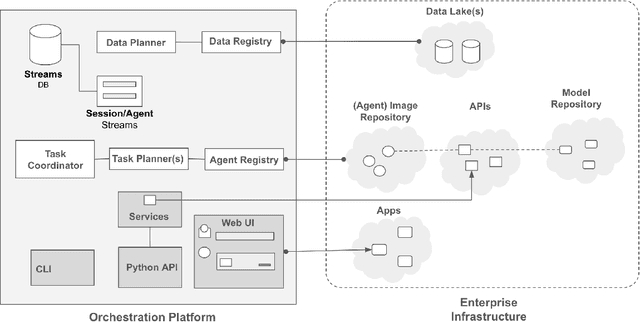

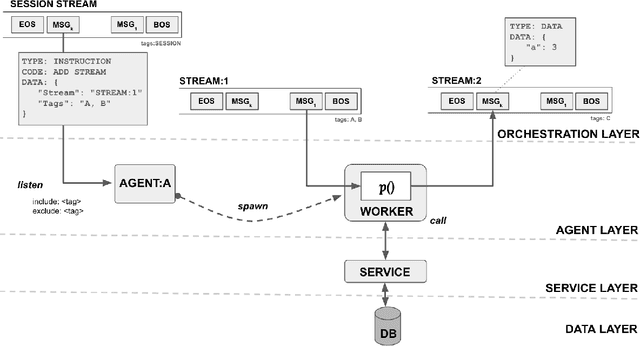
Abstract:Large Language Models (LLMs) have showcased remarkable capabilities surpassing conventional NLP challenges, creating opportunities for use in production use cases. Towards this goal, there is a notable shift to building compound AI systems, wherein LLMs are integrated into an expansive software infrastructure with many components like models, retrievers, databases and tools. In this paper, we introduce a blueprint architecture for compound AI systems to operate in enterprise settings cost-effectively and feasibly. Our proposed architecture aims for seamless integration with existing compute and data infrastructure, with ``stream'' serving as the key orchestration concept to coordinate data and instructions among agents and other components. Task and data planners, respectively, break down, map, and optimize tasks and data to available agents and data sources defined in respective registries, given production constraints such as accuracy and latency.
MEGAnno+: A Human-LLM Collaborative Annotation System
Feb 28, 2024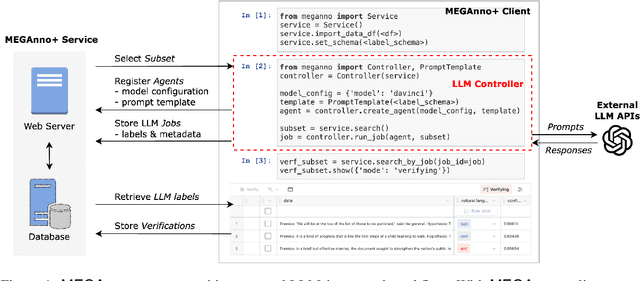
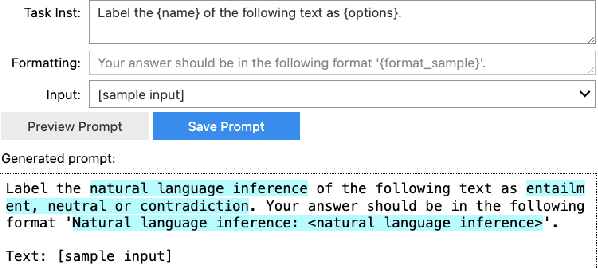

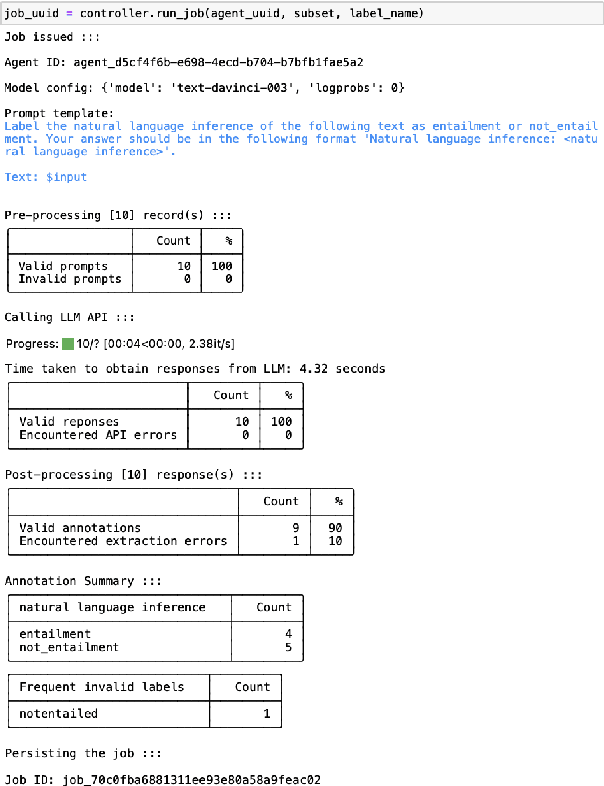
Abstract:Large language models (LLMs) can label data faster and cheaper than humans for various NLP tasks. Despite their prowess, LLMs may fall short in understanding of complex, sociocultural, or domain-specific context, potentially leading to incorrect annotations. Therefore, we advocate a collaborative approach where humans and LLMs work together to produce reliable and high-quality labels. We present MEGAnno+, a human-LLM collaborative annotation system that offers effective LLM agent and annotation management, convenient and robust LLM annotation, and exploratory verification of LLM labels by humans.
MEGAnno: Exploratory Labeling for NLP in Computational Notebooks
Jan 08, 2023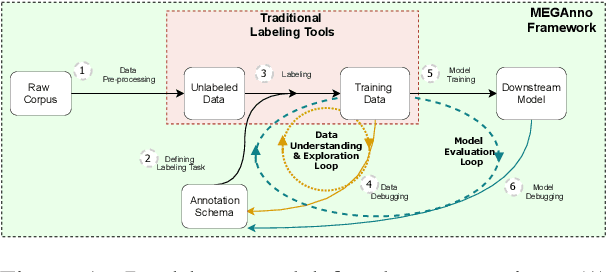
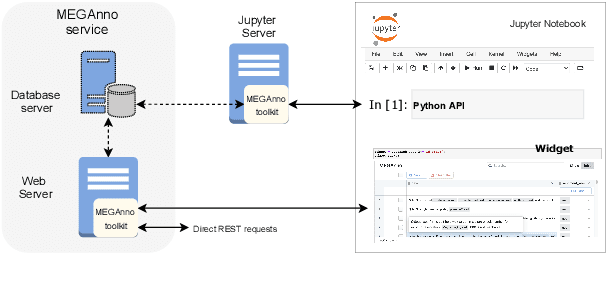
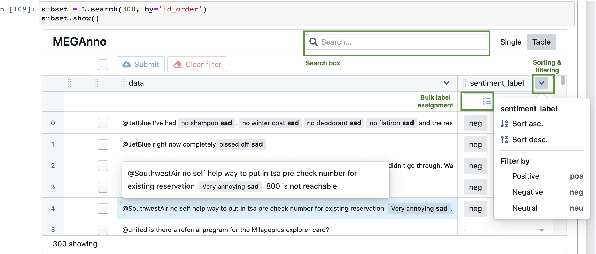
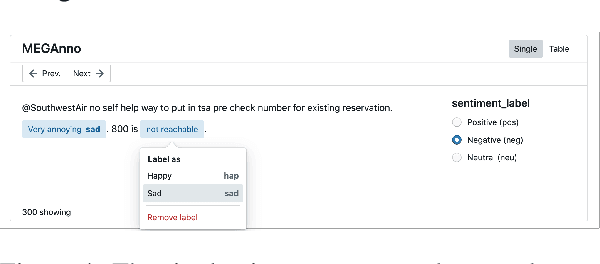
Abstract:We present MEGAnno, a novel exploratory annotation framework designed for NLP researchers and practitioners. Unlike existing labeling tools that focus on data labeling only, our framework aims to support a broader, iterative ML workflow including data exploration and model development. With MEGAnno's API, users can programmatically explore the data through sophisticated search and automated suggestion functions and incrementally update task schema as their project evolve. Combined with our widget, the users can interactively sort, filter, and assign labels to multiple items simultaneously in the same notebook where the rest of the NLP project resides. We demonstrate MEGAnno's flexible, exploratory, efficient, and seamless labeling experience through a sentiment analysis use case.
 Add to Chrome
Add to Chrome Add to Firefox
Add to Firefox Add to Edge
Add to Edge